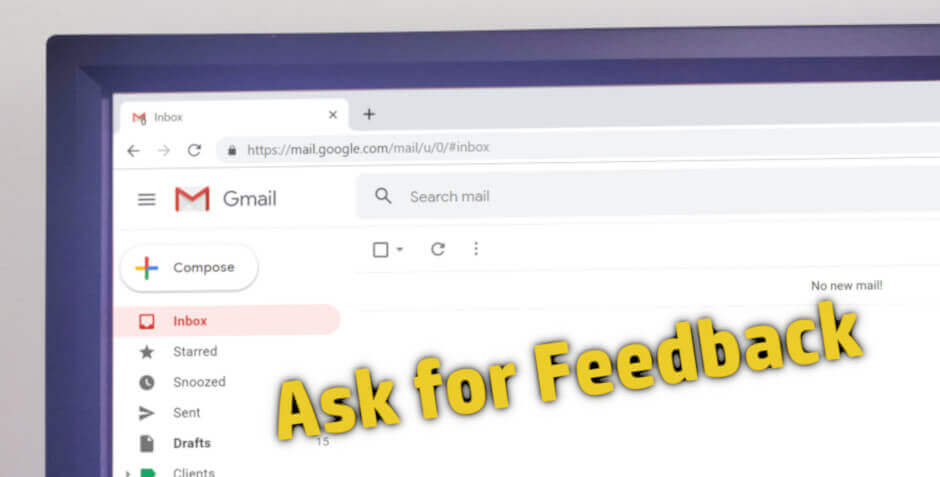Listen to this article
The struggle is real.
The Harvard Business Review stated "in the past five years, the majority of Gen X leaders (66%) had received only one promotion or none at all — significantly fewer than their Millennial (52%) and Baby Boomer counterparts (58%), who were more likely to have received two or more promotions during the same period of time."
Consider this: Baby Boomers aren't retiring and Millennials are moving up, which leaves mid-career Gen X'ers stuck in the middle.
Your promotion could have gone to someone else in your department or an external hire, neither option offers any consolation.
Being passed over for a promotion can be traumatic and leave you with a crisis of confidence or plotting revenge.
As a mid-career professional losing a promotion should serve as a wake up call.
I want to give you some solid career tips for getting promoted after you've been passed over.
These career strategies have worked for my clients and will work for you as well.
You will find strategies that pertain to leadership, finding allies, winning hearts and minds, and most importantly your reaction to the loss of a promotion.
[thrive_leads id='11470']
Big Promise
This article will help you regain self-confidence, reclaim control of your career and recover so you will be ready for the next promotion.
1. Start Here

There is an emotional element to losing a promotion.
Let's start with you.
How can you get past this and move on to your next promotion? The first way is to process what happened and how you are dealing with it.
Emotions are okay, everybody has them, and you will have an emotional response (or two) to the reality that someone else received the promotion you wanted.
Emotions that go unaddressed or that are consistently rehashed in an unproductive way can lead you to become bitter, resentful, and angry.
We don't want that.
Take some time and write out or talk out how you are feeling.
This is important.
Talk to a counselor, a mentor or a coach. Someone qualified to help you process the event and move past it.
If you aren't honest with yourself about how being passed over for the promotion felt, it will show up in other more destructive ways.
People do foolish things when they feel stressed without an outlet.
There's a reason the phrase "going postal" exists. Nuff said.
This is the career advice you didn't see coming, but the career (and life) advice you need.
2. Your Mindset Will Set You Up for Success or Failure

What you think about your situation will often inform your behavior more than the facts of the situation.
You can't control what happens to you, but you can control how you respond to it.
In the first section we dealt with your feelings but you also need to harness your mindset. Your career is in your control. It would be best if you remembered that. There are 3 mindset shifts you need to cultivate intentionally.
Stay Positive
What you think about your situation will often inform your behavior more than the facts of the situation.
Who would you rather work with: someone who was upbeat and motivated or someone who constantly complained?
Positivity is in short supply after you've been passed over for a promotion, but this is when you will most need to see the "bright side" of things.
The health benefits of positivity are being confirmed by Johns Hopkins and the Mayo Clinic. By controlling your self-talk and choosing a positive outlook, you can regain control of yourself and the situation that may seem out of your control.
Here are 3 simple ways to find the positive after losing a promotion.
- Daily affirmations - you can integrate this into your morning routine or at any point during your day.
- Practicing gratitude - focus on the good things that are in your life, not the things that you haven't yet achieved.
- Give a better answer - when people ask you how you are doing, don't just say "fine" or "fantastic" or "making it" use this as an opportunity to remind yourself and encourage others with a great answer. I use "I'm on top of the world having the best day ever." Feel free to use it or come up with your own.
[thrive_leads id='13105']
Think Like A Leader
Promotions usually include leadership or managerial responsibilities, and you very well might be making the promote or don't promote decisions in the future.
Ask yourself the tough questions:
- Were you the right person for the job?
- How are you going to respond to this event?
- What is your path forward?
- What did you or can you learn from this?
- Where do you need to improve?
- What feedback did you receive from decision-makers?
3. Solicit Feedback from Others

Asking for feedback will give you insights into your blind spots.
It's hard to accept that you have shortcomings or that you weren't the right person for a job.
That's because you have a hard time taking an objective look at yourself.
And you aren't alone.
Most people replay only their highlight reels and filter out the struggles, the mistakes, and the failures.
So here's how you fix that. Ask for feedback from people you work with and people who know you well and trust.
Asking for help, especially in a way that makes you vulnerable, is difficult and may be outside of your comfort zone, but this is where you will gain the insights that will help you to snag the next promotion.
Their feedback will facilitate your career advancement. Your peers and trusted friends can see your blind spots and can help you smooth some of your rough edges.
This will be your quick and dirty 360-degree assessment.
The easiest way to do this is in an email because most people will be uncomfortable sharing this face-to-face.
Your email should be short, specific, simple, and clear.
Emphasis on specific. If you ask someone what they think of you, most likely you won't get a response, or the responses won't be helpful.
[thrive_leads id='13817']
4. Think like an Free Agent

A simple shift in how you see yourself and your career can open up more opportunities.
Today's workplace demands you have an entrepreneurial mindset. The massive layoffs of the 1990s, the transition from pensions to portable 401(k)s, among other things (which I talk about more in my post on work/life balance) changed the relationship between employees and employers.
My parents and many from their generation worked for one employer for 40ish years and then retired with a guaranteed pension and health benefits.
That's not our workplace reality.
Most states are "at-will" employment states, which means you can leave or be fired without cause or justification. I'm no lawyer and don't offer legal advice, but you can learn more about at-will employment here.
What this means is In your career, you are Chief Brand Manager, and you are the brand!
You can choose to be a loyal employee at one company for life, you can pivot as you climb through various positions and organizations, or you can start your own business.
You are in control, and your career and future are in your hands. You can always take your "talents to South Beach" as it were. That was a Lebron James reference if you aren't a basketball fan.
5. Invest in Yourself

Investing in your personal and professional development is a must.
Investing in your professional development gives you an edge others in your organization won't have.
If we live in a knowledge economy, how much are you worth to your organization?
- How much money have you spent on your professional development in the last 12 months that wasn't mandatory?
- How many books have you read in the last 12 months?
- How many conferences or courses did you take that weren't provided by your employer?
- If you are lagging behind, how can you lead a team forward?
From my research, most people spend $0-$2000 per year on their own development. And the majority of people spend closer to the $0 than the $2000.
Think about it this way. When you graduated from college, you had the most up-to-date understanding of your field at that time.
Keywords: at that time.
I get it. It's easy to neglect your professional development.
As you get busier, the need to keep your professional edge sharp can get lost in the tsunami of everyday emergencies.
Things change quickly, and you need to race just to keep up.
Here's the thing: keeping up doesn't give you a strategic advantage or set you apart or prepare you for a promotion. It just keeps you in the middle of the pack.
Investing in yourself:
- allows you to take your career growth and career advancement into your own hands;
- gives you a perspective your colleagues won't have;
- keeps you current with industry trends and best practices;
- increases your confidence because you aren't regurgitating misinformation;
- increases your value to your team and organization.
How much can you set aside for books, a conference, or a course that could give you an edge?
If you are going to snag that next promotion something will need to change, you will need a strategic advantage. That starts with your investment in yourself.
6. Get a Coach

A coach can help you make progress quickly as you prepare for what's next.
Luke had Yoda.
Neo had Morpheus.
Harry had Professor Albus Percival Wulfric Brian Dumbledore.
Each of those fictional characters had a guide who played a pivotal role in helping them achieve their potential.
Most, if not all, of the people you admire have someone in their corner helping them to succeed.
Who do you have?
Who guides you through tough decisions and helps you to improve across the board?
For most people, the answer may be a friend or a colleague. They can be great sounding boards when you need to remain professional.
When it comes to making positive and rapid change, they probably won't have the tools or experience to help.
Mentoring is also helpful, but it differs from coaching.
Coaches have processes to help you uncover and make progress toward your goals.
As you consider investing in yourself, consider working with a coach as an investment with an almost immediate ROI.
A coach will help you make space to think in an increasingly hectic workplace.
Space to think is the most undervalued resource in modern society, but it's necessary to create sustained personal and professional change.
Engaging a coach will enable you to gain an outside perspective that is focused on your advancement with no ulterior motives.
Good coaching pulls outstanding answers out of you that you will want to implement.
Leadership or business coaching is in order when you want to make sustainable change more rapidly than with trial-and-error.
Accountability
Accountability is the backbone of good business coaching.
Having a scheduled oasis in your week where you can stop reacting, take a breath, and intentionally plan your next steps will keep you from dropping the ball on essential projects and tasks.
Fewer things "fall through the cracks," you get more accomplished, and you learn to mitigate career-limiting behaviors.
You will begin to clear your to-do list and make headway on projects because you have enlisted a thinking partner.
Structure
Providing a structured environment elevates the process from a friendship to an accountability relationship.
The structure ensures that you are consistently making progress and remaining focused on the goals you have defined.
I tell all of my clients they aren't paying for a friend, we are here to achieve the goals they outlined.
Results
If you are looking to get promoted, a coach may be necessary. A coach will:
- help you clarify your goals;
- create a plan; and
- provide the accountability and structure you need to achieve it.
If working with a career or leadership coach sounds like the right next move for you, [thrive_2step id='10910']schedule a 30-minute Goals Conversation[/thrive_2step]. We can clarify your goals and discuss the next steps.
7. Find a Mentor

Mentors can provide invaluable assistance navigating corporate culture.
Mentors and Coaches serve similar purposes but use different means to achieve results.
Mentors can be a great resource , and you can have a mentor and a coach at the same time.
There are several critical differences between coaches and mentors.
- A mentor may focus on what's worked for them in their past.
- A coach will focus on your future.
- A mentor may be more of a friend or colleague with experience.
- A coach will have a structured process to move you toward a goal.
- Mentoring conversations may or may not emphasize progress.
- Coaching conversations are designed to make progress.
- Mentors are often within your organization or industry.
- Coaches are usually outside of your industry.
- Mentors usually "take you under their wing."
- Coaches guide you along your path.
When looking for a mentor, look for someone who may be a few levels above you on the organizational chart or someone you admire.
Mentors can open doors, make introductions, share experiences, and help you succeed within the organizational structure.
Influential leaders in every organization are looking for ways to help those coming behind them. You can find a good mentor if you are patient.
Start by building relationships.
Your first conversation shouldn't be, "Hi, I really admire you, can you mentor me?" Because that answer will almost certainly be "Uh, no."
Finding a mentor is challenging for several reasons:
- Mentoring requires a time commitment from both mentor and mentee.
- People who receive requests from potential mentees are often very busy.
- Good mentoring relationships are just that, relationships, and those take time.
- Often you don't have access to those individuals.
- The fear of being rejected keeps some people from asking for a mentor.
Here are three tips to remember when you are looking for a mentor:
- It should be a two-way street. What do you bring to the table? How can you help them? A one-way relationship won't last long. It might not be clear to you at first, but you can always ask, "How can I help you because I want this to be a two-way street?"
- Understand what you want out of the relationship. Be clear about how you would want a mentor to help you.
- Commit to the relationship. Be on time. Be available. No excuses.
Company Mentoring Programs
Companies understand that mentoring can increase productivity, transfer tribal knowledge, and develop a strong leadership bench.
If your company offers a mentoring program, take advantage of it, understanding that there will be some limitations.
The idea is good on paper, but my experience has been that assigned mentoring relationships don't always work.
By assigning mentors, organizations move right to the mentoring phase, bypassing the difficulties outlined above, at the expense of connection.
Often there's no ownership and a feeling of "they told me I had to do this, so let's get it over with."
Mentoring is a relationship, and the most productive mentoring relationships are born out of mutual agreement.
I'm working with a large client to create a corporate mentoring program that can overcome some of these inherent problems.
[thrive_leads id='12750']
8. Build More Relationships

Career advice: There's always time to meet amazing people.
It's not who you know; it's who knows you.
Knowing and being known by your colleagues and bosses doesn't hurt when you are trying to get promoted at work.
This bit of career advice will help provide visibility within your organization and help you create a more extensive network outside of your organization.
Building relationships doesn't come easily for everyone. If it does for you kudos. For the rest of us, here are some tips.
You need to get out of your comfort zone to meet people and build relationships if you want to be considered for upcoming promotions.
Industry Connections
I'm talking about networking, but not the way you might be thinking about it.
Networking as usual looks a bit like this:
- You go to a place,
- do the small talk,
- collect the business cards,
- leave feeling this was a complete waste of time.
Usually, people gauge success on how many "connections" they made, which is code for business cards they collected.
This doesn't work.
When I teach business people how to network, it's about finding a few people at an event that you can connect with later to build a relationship with.
Now what to do with this stack of business cards?
- Identify 1-3 people who you feel you would want to speak with again; you may be able to help them, or they can help you. Perhaps you think they were cool and you would like to get to know them better.
- Email or call them and invite them to coffee or schedule a phone call.
- Learn more about them.
- Determine if they are someone you would like to meet with again.
- Repeat the process.
Remember, you can network virtually via social sites like Linkedin, Facebook, or Twitter.
As many of these connections might be geographically distant, a phone call might be your target outcome.
In-Company Connections
Let's start with your company and on your team.
Who have you worked with but don't really know? Maybe you know everyone on your team.
Do you know the people on the teams your team interacts with?
Peers
These connections should be relatively simple to make.
Choose someone you email often and that you frequently work with. Invite that person out for a coffee or lunch and let them know you are "intentionally getting to know the people you work with."
Most people will respect that.
Superiors
Connecting with higher-ups might be trickier. Often they have gatekeepers.
It wouldn't hurt your career advancement to schedule a lunch or coffee with your skip-level manager.
They should be easier to connect with. At lunch, ask who else you should meet.
Patience can be your ally here.
The higher up on the org chart, the longer you may have to wait for a meeting.
With these leaders, you might have to forego the coffee and meet in their office in a more formal meeting format.
So be prepared with good questions and thoughtful observations.
Here are a few keys to building strong relationships:
- Be genuinely interested in others. Building relationships at work or anywhere else will be difficult
- Find common ground.
- Make time to connect.
- Be yourself.
[thrive_leads id='11470']
9. Implement The Feedback

The most difficult part about feedback is making the changes the feedback identifies.
What got you here won't get you there.
Feedback can be a catalyst for personal and professional growth if you implement it.
Asking for feedback can be daunting because you place yourself in a vulnerable position.
But adjusting your behavior based on that feedback may prove more difficult.
The most difficult part about feedback is making the changes the feedback identifies.
Let's look at it this way. Those who gave you feedback want you to succeed.
Ask questions of the feedback.
- What do I agree with?
- What do I disagree with?
- Easy to implement?
- Difficult to implement?
From this quick-and-dirty sort, you can identify a few ideas you can start to work on quickly. As you begin your journey of behavior change, only try to change one thing at a time.
Recipe For Success
Trying to implement too many new ideas will be overwhelming, and you will probably bail on all of the ideas.
I recommend you take 1 idea and try it out for 2-4 weeks. At the end of your trial period, see if you have made progress.
Let people know you are working on the observations they made and ask them to be patient with you as you make the adjustment.
- Sort the feedback based on the earlier questions.
- Make only 1 change at a time.
- Work on that 1 change for 2-4 weeks or until you feel you have it.
- Let people know you are working on it.
- Ask for their patience.
- Be patient with yourself.
- Confirm you have made progress.
- Move on to your next item on the list.
[thrive_leads id='12750']
10. Can You Advance Here?

Is it possible your career has progressed as far as it can in your current organization?
The sooner you realize if you can grow at an organization, the better.
An honest answer to this question will help you determine if your career advancement will happen with your current organization or if you need to start considering your options.
If you want to advance your career and be promoted but are in a company that either won't or can't promote you, the sooner you know, the better.
I spent too many years in a position where there was no hope of advancement. I didn't know this until the president told me plainly. I began my exodus shortly after that conversation.
I have had clients who changed companies because there were just no opportunities to advance where they were.
This isn't an admission of failure but an acknowledgment of a workplace reality.
It could have nothing to do with you, there may be a traffic jam at the top of the organization.
Here are a few questions to help you determine if your career can bloom where you are currently planted.
- Is this culture a good fit for you?
- How are you perceived by those in leadership above you?
- Is current leadership young enough to be there for many years to come?
- What's the turnover rate at the top?
- Is your company hiring or on a hiring freeze?
- Do they promote from within or look outside?
- Is there a leadership development program to create corporate bench strength? If so, are you in that pipeline?
- What are the benefits of staying? Or leaving?
- What is the leadership consensus on you? Do they feel you are promotion material?
It all boils down to whether you feel you have a shot at a promotion at this company.
If yes, keep on truckin'.
If no, it may be time to look for other opportunities.
11. Consider Your Boss's Perspective

Understanding your boss's motivations will allow you to find objectivity.
When you missed out on the promotion, the decision implies that you weren't the best candidate for the position.
Yeah, that stings a bit, but remember to keep your mindset in check.
Now that we've moved past the sting, the question you need to ask is how you can become the best candidate.
Let's reclaim control by asking some questions.
These are questions you can ask your boss when the time is right. Your emphasis will be preparation for the next opportunity.
- Where in the decision-making process did you fall short in the estimation of your bosses?
- What skills or experience were you lacking?
- Did you have the requisite education for the position?
- Was there something in your past that would lead them to believe you couldn't handle this assignment?
- Are you too valuable in your current position?
- Are you perceived as under-performing in your current position?
The answers to these questions will provide you a window into how you are perceived and how you can prepare for the next opportunity.
12. Review Your Past Performance

An honest look at your past performance can help you understand why you weren't promoted and where to focus your development efforts.
Expanding on the idea of Considering Your Boss's Perspective, let's look at your track record in your current position.
Your track record is the cumulative impression you've made during your employment. It's your past performance.
Let's answer the question: what role did you play in the decision not to promote you?
It's been said you are only as good as your last... project, talk, training, sale, etc. So, where does that leave you?
- Have you had any career-limiting failures?
- Are your assignments done on or before deadlines?
- Are you a go-to person for high-profile or challenging projects?
- Are you a likable person?
- Have you been unprofessional in ways that would hurt people's perception of you?
- Are you a team player?
- Do you have solid interpersonal skills?
- Are you a high-maintenance employee?
- Do you provide more excuses than results?
- Is it always someone else's fault?
- What were the problems and successes in your last 2 projects?
- Define and consider your relationships with your teammates?
- How would you describe your relationship with your direct supervisor?
These questions aren't for the faint of heart.
Be honest with yourself as you answer these questions, even if some of the answers identify sensitive issues.
That's what's supposed to happen.
The answers may provide additional insights into why you were passed over for the promotion and how to get promoted next time.
By answering these questions, you regain control of your career and can create a career advancement plan.
You can adjust, adapt, and make changes.
Also, some of these questions can be integrated into the Feedback you request from your peers and trusted colleagues.
13. Assess the Gaps

What gaps in your experience or skills disqualified you for the promotion?
This is another strategy for getting promoted at work.
Ask yourself (and probably) your boss, in what ways were you not qualified for the position?
Promotions usually involve greater responsibilities, managing employees, leadership responsibilities, etc.
Did you have the education, experience, skills, and track record? If not, what were you missing?
Filling in these gaps does two things:
- It gives you transferable skills.
- Puts you in a better position so you won't be passed over for a promotion again.
When it comes to professional development, you need to Invest In Yourself beyond what's offered at work.
If every leader is being sent through the same classes, they all have the same perspective.
Taking the initiative to pursue outside courses provides you a different perspective and a strategic advantage.
Considering the holes in your experience gives you direction to take control of your career advancement.
Now you know where to spend your time and effort preparing for the next opportunity.
Find ways to augment your skills with courses and experience.
- Ask for more challenging assignments.
- Volunteer for high-profile projects.
- Take courses that will give you a strategic advantage.
- Read on the topics you need to strengthen. Here's a reading list you might want to consider.
- Review your answers related to your Track Record and the Feedback you've received.
- Do you need to get another degree, certification, or industry credential?
[thrive_leads id='13105']
14. Look For Other Opportunities

Career advancement opportunities are everywhere but you have to look for them.
When one door closes, look for another door! - David Arrington
This promotion wasn't for you. Then what is for you?
What other opportunities exist inside and outside of your company?
It's time to consider your mid-career options. Is this organization still right for you?
Where would the jobs you're looking for be posted? And how can you start looking discreetly?
Internal Moves
There should be an internal job board within your organization. This is an excellent place to start.
If you've done a good job of Building Relationships, you might know about job postings before they are made public.
Moving To Another Company
Looking outside for jobs is easy and on LinkedIn, you can do it discreetly.
If you don't have a LinkedIn profile, make one now.
- Create a shortlist of companies you would want to work for.
- Check their websites to see what positions they are currently hiring for.
- Update your LinkedIn Profile.
- Search jobs on LinkedIn.
- Optional: Reach out to LinkedIn or IRL connections at those companies
There are a ton of career websites that can also help you find another job, but LinkedIn might be the most discreet.
They even send you updates on jobs available in your area that you might want to apply for.
Like I said, simple and discreet.
Starting Your Own Business
You probably think startups are for the young, well yes and no.
MIT Technology Review cited research that demonstrated "that a 50-year-old entrepreneur was nearly twice as likely to build a highly successful company as a 30-year-old."
Starting your own business has a steep learning curve.
You can start your own business from scratch, or you can purchase a franchise.
You will need to weigh the pros and cons of each approach and how that impacts you.
Entrepreneurship doesn't immediately offer the benefit of a steady paycheck, but it can be a great next act if you are more entrepreneurial.
This option makes sense if you have enough money to sustain your lifestyle until you have clients to support you or if you already have enough paying clients.
You may be mid-life or mid-career, but that doesn't mean you can't begin your own venture.
15. Remain Professional

Remaining professional in the face of disappointment will ensure you don't disqualify yourself from the next promotion.
Don't take it personally. Don't react in an unprofessional way.
You were passed over for a promotion, don't take it personally.
Your response will impact your consideration for your next opportunity.
Even if you feel the decision was personally motivated. You remain professional.
- Could your boss be jaded against you? Sure.
- Might your track record in your company have caused you to be passed over for the promotion? Yes.
- Could other factors have biased the decision against you? Absolutely.
You remain professional and don't take it personally.
- Don't post a rant on social media. The internet never forgets.
- Don't talk about your boss to your co-workers.
- Don't become aggressively passive-aggressive.
When you do discuss your feelings about how or why the decision was made, with trusted confidants, vent your frustration , then move toward solutions.
If you fixate on being passed over for this promotion as a personal attack, it is far more challenging to move past and learn from.
There is almost no possibility that your reaction will change the decision, so be wise in choosing your response to this disappointment.
You have control of your mindset. Choose to respond professionally.
You are going to experience several emotions after a loss, which is what this is. How you respond is entirely up to you.
You can:
- Yell into a pillow. No seriously.
- Speak with a counselor.
- Engage a coach.
- Speak to your mentor.
- Speak to a spiritual advisor.
- Speak about your concerns with trusted, confidential friends.
- Journal about it.
You shouldn't:
- post rants on social media.
- have an at-the-office melt-down.
If you can't get past being passed over for the promotion, start looking for other opportunities.
When you do find a new opportunity at a different organization, you might need a letter of recommendation.
Remain professional.
16. Support the Person Who Was Promoted

Supporting the person who got the job you wanted sets a positive tone for your team.
Think about it this way, how would you want to be treated by your team if you had gotten the promotion? Do that for the person who received the promotion you wanted.
Pettiness is easy; graciousness takes work.
This becomes an issue when you now report to the person who was chosen over you. It may require more effort to remain professional, foster a healthy team culture, and do your best work, but you need to.
I have worked with client organizations , where this became an issue.
Someone was hired in or promoted, and those who weren't promoted became toxic.
Do you think those toxic team members will be considered for future promotions? Nope. Which is why you should work to be a positive influence on your team.
In some instances, these toxic individuals left on their own. In other cases, they were let go.
Whether you are planning to stay with this organization or move on if one of your career advancement goals is to be promoted, this is important.
One day you will receive the promotion someone else wanted. Put yourself in the position of supporter and focus on being more productive.
Because... Karma.
How would you respond to toxicity from a disgruntled employee, someone who wanted your job but didn't get it?
How would you handle that situation? [Pause for reflection.] Exactly.
Focus your energies on building yourself up instead of tearing someone else down.
[thrive_leads id='11470']
17. Take on Stretch Projects

Taking on a project that requires you to develop and hone new skills can prepare your for greater responsibilities in the future.
After you have received feedback, assessed your gaps, reviewed your track record, and considered the decision from your boss's perspective, you will want to look for opportunities that will stretch you.
Look for opportunities, projects, assignments that push you out of your comfort zone.
Find opportunities to grow, but that don't throw your work/life balance into disarray.
Consider these new or additional assignments through a specific lens:
- Does it address 1 or more of the gaps identified?
- Can I do it with my current workload?
- How will successfully completing this assignment reflect on me?
- How will failing in this assignment reflect on me?
- How far out of my comfort zone is this?
- How steep is the learning curve?
- Will I need additional training?
- How will this impact my loved ones? More travel, longer hours, etc.?
- Is there a new title that will facilitate my next role at another organization.
- Will working this project give you visibility higher in the organization?
Stretch assignments can be great learning experiences, increase your visibility within your organization, and help you build relationships.
18. Understand Your Boss's Goals

Understanding what your boss is trying to accomplish will help you know where to focus.
This career strategy helps you to understand what drives your boss's decisions. It can also help you to understand the pressures they are under and how to help them succeed.
Your boss has a boss. Your boss has deadlines and deliverables.
When you know what's important to your boss, it informs what you focus on.
Helping your boss succeed positions you as a key resource and ally instead of another person they have to manage.
You can figure out what's important to your boss by observing what they focus on. Are they more concerned about speed, safety, accuracy, timeliness?
Ask them what their quarterly goals are. This is a 200IQ question that most employees won't think to ask.
I've had clients who reported to new managers, and one of the first things I suggest they do is have a goals conversation with their new manager.
This conversation allows your manager to see you as someone able to see the bigger picture and will enable you to focus on the tasks that will give your boss quick wins.
If you don't feel comfortable asking that question adjust it to:
- Where can I focus my efforts to make the most significant impact over the next 3 months?
- What tasks or projects will have the most significant impact on our section goals this quarter?
- Considering my workload, which item would you give the highest priority?
If they say something like "all of your projects are top priority," that means they don't have an answer or are so overwhelmed they don't know.
Some managers may not have clarity on this topic. If it feels like you are asking questions, they don't have answers for, ABORT.
You don't want them to feel you were trying to embarrass or humiliate them. Change the topic to what you are working on and how you see your priorities.

If your work is no longer excellent do you deserve to be considered for a promotion?
Focus on executing with excellence. Continue doing great work.
This career advice may seem counter-intuitive, but it's not when you think about it.
If your goal is to stew over the promotion that wasn't, then start turning in shoddy quality work, that's late and riddled with errors.
Where do you think this path leads?
If your goal is to position yourself for the next promotion opportunity, then continuing to produce excellent work makes all the sense in the world.
When you are disappointed and frustrated, it will take more effort, but that effort will pay off in this assignment or at your next company.
Many people make the mistake of taking their disappointment out on their teams and ultimately themselves by lowering their standards.
Don't do this.
If anything increase your output and your value to the team.
Keep doing great work as you consider your mid-career options. But don't damage your reputation willingly.
20. Foster A Healthy Team Culture

Team culture is fragile. Be an agent for a positive, healthy culture.
Whether you are leading a team or on a team, you impact the culture. Make sure your impact fosters a healthy team culture.
Of all of the behaviors I help clients remediate, toxicity is one of the easiest to avoid.
If you are creating a toxic work environment, your chances of promotion drop pretty quickly as do your chances of receiving a glowing recommendation for your next assignment.
Toxicity is never a part of anyone's career advancement plan, but it can creep in unnoticed and infect you and your team.
Then it's tough to shake.
Remain professional, support the new leadership, and continue to do your work at a high level.
Be available to your teammates, continue to offer support and leadership, avoid conversations that are more destructive than productive.
[thrive_leads id='12750']
21. Communicate More Clearly

Communicating more clearly will help your team members to be more effective and you to be more productive.
You've successfully communicated when the other person can demonstrate they understand your idea.
Leaders under-communicate more often than they know.
I've worked with leadership teams that have been together for years that would actively under-communicate in meetings, which led to confusion and reduced productivity.
It's easy to believe that because you've said words or sent an email that you've communicated. But you haven't.
Effective communication requires intentionality and patience.
The benefit is less team friction over missed deadlines and low-quality deliverables.
Providing Feedback
Feedback is one of the first things leaders need to do well, but most don't understand how to give feedback that motivates.
Feedback is one of those skills you are supposed to have acquired when you were knighted, leader. But it doesn't work like that.
Giving feedback that inspires is difficult.
I created a a free mini-course on providing powerful feedback to provide even more help on this topic.
Setting Expectations
Setting clear expectations is a critical leadership skill and a skill you will need after any promotion.
You will need to set expectations with peers and supervisors.
Never assume someone understands what you are asking them to do unless you hear them say it themselves.
Setting clear expectations involves:
- understanding what you want or need
- being able to state that clearly
- providing a clear deadline or due date
The most challenging part of setting clear expectations is taking the time to get clear on what you want.
Taking 15 minutes to think through what you need will save you hours later.
22. Master Meetings

Learning to lead effective meetings is vital to team productivity and your promotablilty.
A necessary part of your career development and preparation for promotion would be to get proficient at leading productive meetings.
Meetings are an all-too-common element of the modern workforce.
Most meetings are a waste of time, but they don't have to be. Too many meetings seem to meander aimlessly without regard for time.
Conducting productive meetings should be a high priority because you can boost productivity and morale just by changing a few elements of your meetings.
I've created a video mini-course you might like: Leading Meetings that Don't Suck.
23. Develop Your Leadership Skills

Leadership skills will be more necessary the higher you climb the corporate ladder.
Your leadership skills will be tested in almost all promotions.
If you are looking to be promoted, you want to demonstrate you can handle the additional leadership elements of that dream job.
You want to go for stretch assignments, learn how to lead productive meetings, communicate more effectively, and work to foster a healthy team culture.
Some of the leadership skills that set high potential leaders apart from passed over leaders are:
- handling conflict
- ability to motivate and inspire your team
- providing strategic direction
- providing useful feedback
- helping your team adapt to rapid and relentless change
- leveraging accountability
- learning to managing up
You can learn more in these articles I published:
- 7 Leadership Skills to Make You a Better Leader This Week
- 5 Common Leadership Mistakes (You're Probably Making)
- 8 Critical Factors for Leading High Performing Teams
You might have become aware of other leadership focus areas based on the feedback you received and the gap assessment you conducted.
[thrive_leads id='11470']
24. Develop Your Followership Skills

Followership is critical to becoming a good leader and that's critical to being promoted.
As I work with leaders, what's interesting is that everyone has a boss.
Leadership and followership go hand-in-hand.
It is tough to be a good leader if you aren't a good follower.
Following has been downplayed in our society. Everyone wants to lead. If everyone's leading, who's following?
There is a strong case for more positive, accountable, courageous followers.
Followership doesn't mean you become a yes man (or woman). It means you understand your role as an adviser to the leader.
The following involves active participation in team direction and outcomes.
You bring your expertise, your knowledge, and your perspective to the team so that the best approaches can be adopted and executed.
Courage is required because you may disagree with a leader's position without becoming disagreeable or undermining.
Accountability goes both ways because you have to hold yourself to the same standard you expect from your leader.
Active followers state their position and accept the consensus of the group even if their idea didn't prevail.
A note of caution, active followership doesn't mean you are always playing "the devil's advocate" or arguing points for the sake of being contrary.
25. Create Your Career Advancement Plan

Crafting a career advancement plan will help you to take the actions that will get you to your goal.
A career advancement plan is the logical next step.
What good is all of this if you don't take action?
I get this request often from mid-career professionals looking to make intentional next steps.
Everything discussed in this article leads you to this plan. It can be as detailed or as simple as you like.
When working with clients, I create a more detailed version of this plan and leverage it as the basis for the coaching relationship.
Some of the elements to include are:
- Your career goals
- Gap mitigation
- Stretch assignment possibilities
- Consideration for work/life balance
This plan will serve as a living career road map, it will adjust and change as your goals shift over time.
Will everything go to plan, no. But having a plan provides you with a filter for decision-making.
If you would like us to help you with your Career Advancement Plan with you, [thrive_2step id='10910']schedule a 30-minute Goals Conversation[/thrive_2step] and we can get the process started.
Conclusion
Being passed over for a promotion doesn't mean you will never get promoted.
There are proactive, positive steps you can take to regain your confidence, control your emotions, work through the disappointment, and produce some of your best work.
The steps outlined above keep your reputation intact, demonstrate your value to the team, and highlight your potential.
It is my hope that through this article, you realized that you still have control over your career and can take specific, measurable action to move forward.
Please share this and drop a comment if you found an idea or two that helped.
[thrive_leads id='13105']

